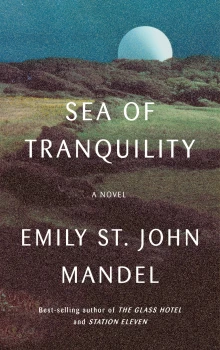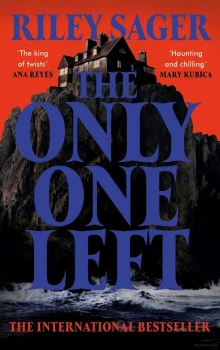5
The trouble with Victoria, in Edwin’s eyes, is that it’s too much like England without actually being England. It’s a far-distant simulation of England, a watercolor superimposed unconvincingly on the landscape. On Edwin’s second night in the city, Thomas takes him to the Union Club. It’s enjoyable at first, a shot of home, pleasant hours slipping past in the company of a few other old boys from the homeland and some truly exceptional single-malt scotch. Some of the older men have been in Victoria for decades, and Thomas seeks out their company. He stays close, asks their opinions, listens seriously to them, flatters them. It’s embarrassing to watch. Thomas is clearly hoping to establish himself as a steady kind of man with whom one might wish to go into business, but it’s obvious to Edwin that the older men are only being polite. They’re not interested in outsiders, even outsiders from the correct country, with the correct ancestors and the correct accent, who’ve gone to the correct school. It’s a closed society that admits Thomas only on the periphery. How long will Thomas have to stay here, circling around inside this clubhouse, before they’ll accept him? Five years? Ten? A millennium?
Edwin turns his back on Thomas and goes to the window. They’re on the third floor, with a view of the harbor, and the last light is fading from the sky. He feels restless and ill at ease. Behind him, men are relating tales of sporting triumphs and uneventful voyages by steamship to Quebec City, Halifax, and New York. “Would you believe,” an arrival at the latter port is saying, somewhere behind him, “my poor mother was under the impression that New York was still part of the Commonwealth?”
Time passes; night falls over the harbor; Edwin rejoins the other men.
“But the unfortunate truth of the matter,” one says, in the depths of a conversation about the importance of being an adventuring sort, “is we’ve no real future back in England, have we?”
A pensive silence falls over the group. These men are second sons, one and all. They are ill-prepared for a working life and will inherit nothing. To his own great surprise, Edwin raises a glass.
“To exile,” he says, and drinks. There are disapproving murmurs: “I would hardly call this exile,” someone says.
“To building a new future, gentlemen, in a new and far-distant land,” says Thomas, ever the diplomat.
Later, Thomas finds him standing by the window.
“You know,” he says, “I may have heard something or other in passing about a dinner party, but I’m not sure I quite believed it till now.”
“I’m afraid the Barretts are incorrigible gossips.”
“I think I’ve had about enough of this place,” Thomas says. “I thought I could make a go of it here, but if you’re going to leave England, surely there’s something to be said for actually leaving England.” He turns to face Edwin. “I’ve been thinking about going north.”
“How far north?” Edwin is beset by a worrisome vision of igloos on the frozen tundra.
“Not very far. Just up Vancouver Island a little.”
“You have prospects there?”
“Specifically, my friend’s uncle’s timber company,” Thomas says. “But in the abstract, wilderness. Isn’t that why we’re here? To leave a mark on wilderness?”
What if one wanted to disappear into wilderness instead? A strange thought on a northbound boat a week later, steaming up the broken coast of the west side of Vancouver’s Island. A landscape of sharp beaches and forest, mountains rising up behind. Then all at once the broken rocks subside into a white-sand beach, the longest Edwin has ever seen. He sees villages on the shore, smoke rising, those wooden columns with wings and painted faces—totem poles, he remembers now—erected here and there. He doesn’t understand them and therefore finds them menacing. After a long time the white sand subsides into rocky crags and narrow inlets again. Every so often he sees a canoe in the distance. What if one were to dissolve into the wilderness like salt into water. He wants to go home. For the first time, Edwin begins to worry about his sanity.
The passengers on the boat: three Chinese men going to work in the cannery, a very tense young woman of Norwegian origin traveling to join her husband, Thomas and Edwin, the captain and two Canadian crewmen, all in the company of barrels and sacks of supplies. The Chinese men talk and laugh in their own language. The Norwegian woman stays in her cabin except for meals, and never smiles. The captain and crew are cordial but uninterested in talking to Thomas and Edwin, so Thomas and Edwin spend most of their time together up on deck.
“What those utterly inert fellows in Victoria don’t quite understand,” Thomas says, “is that the entirety of this land is here for the taking.” Edwin glances at him, and sees into the future: since Thomas was rejected by the Victoria business community, he’ll spend the rest of his life railing against them. “They’re ensconced in their very English city, and, look, I do understand the appeal, but we have an opportunity here. We can create our own world in this place.” He drones on about empire and opportunity while Edwin gazes out over the water. The inlets and coves and little islands are on their starboard side, and just beyond them rises the immensity of Vancouver Island, its forests ascending into mountains whose summits are lost in low cloud. On the port side, where they’re standing, the ocean extends uninterrupted until, as far as Edwin can figure it, the coast of Japan. He has the same queasy sense of overexposure that he felt on the prairies. It’s a relief when the boat finally makes a slow right turn and begins traveling up an inlet.
They reach the settlement of Caiette in the early evening. There isn’t much to it: a pier, a small white church, seven or eight houses, a rudimentary road that leads up to the cannery and the logging camp. Edwin stands by the pier with his steamer trunk beside him, at a loss. This place is precarious, that’s the only word for it. It’s the lightest sketch of civilizations, caught between the forest and the sea. He doesn’t belong here.
“That bigger building up there’s a boardinghouse,” the captain says kindly to Edwin, “if you wanted to stay here for a spell, get your bearings.”
It’s troubling to realize he’s so obviously lost. Thomas and Edwin walk up the hill together to the boardinghouse and secure rooms on the upper floor. In the morning Thomas departs for the logging camp, while Edwin slips immediately into the same stasis that overcame him in Halifax. It isn’t quite listlessness. He makes a careful inventory of his thoughts and decides that he isn’t unhappy. He just desires no further movement, for the time being. If there’s pleasure in action, there’s peace in stillness. He spends his days walking on the beach, sketching, contemplating the sea from the porch, reading, playing chess with other boarders. After a week or two, Thomas gives up trying to persuade him to come to the logging camp.
Edwin is astonished by the beauty of this place. He likes to sit on the beach, and just gaze out at the islands, little tufts of trees rising out of the water. Canoes pass by sometimes, on unknowable errands, and the men and women in the boats sometimes ignore him and sometimes stare. Larger boats come in at regular intervals, bringing men and supplies for the cannery and the camp. Some of them know how to play chess, which is one of Edwin’s great pleasures. He’s never been very good at chess, but he enjoys the sense of order in the game.
“What are you doing here?” they sometimes ask.
“Oh, just contemplating my next move, I suppose,” he always replies, or words to that effect. He has a sense of waiting for something. But what?





